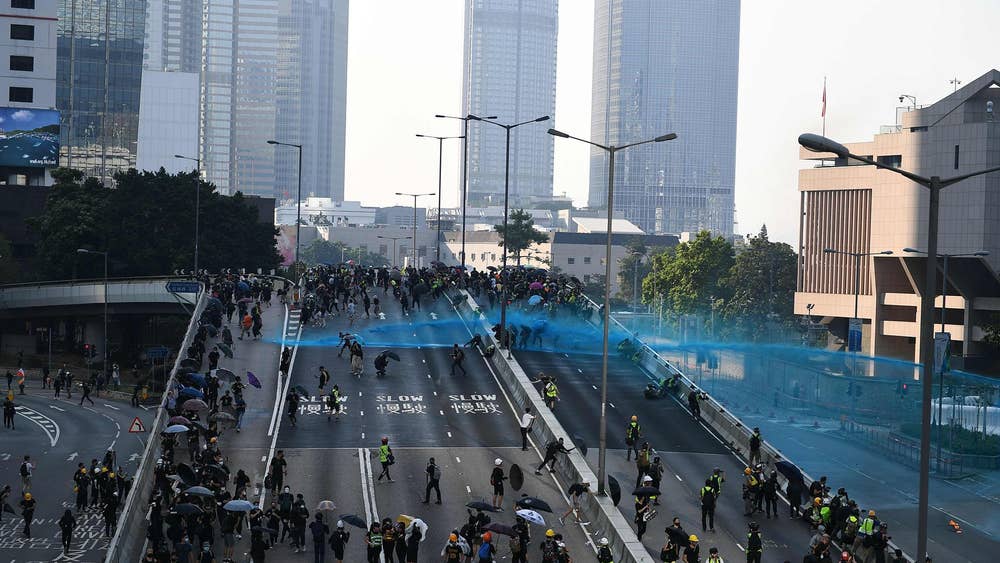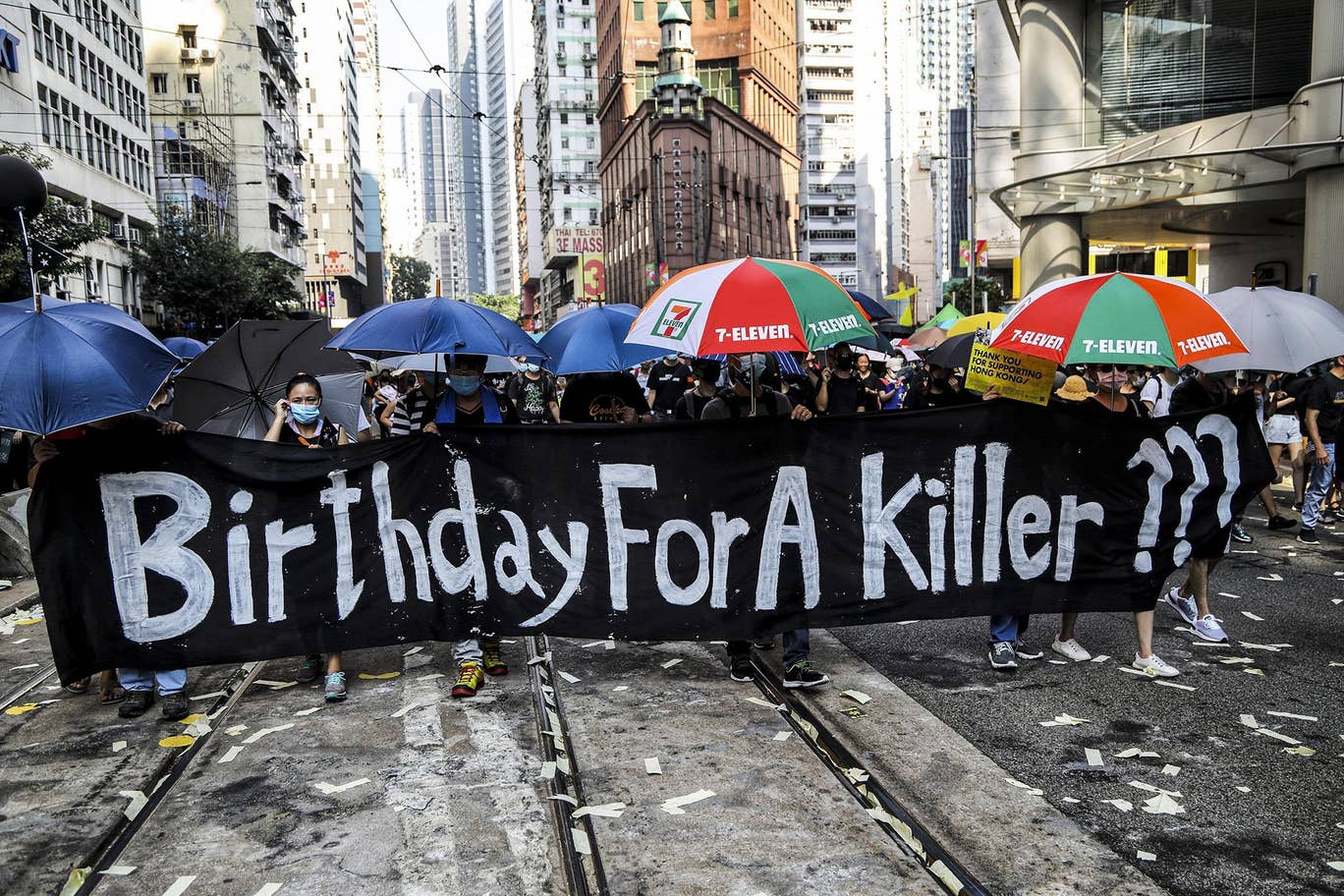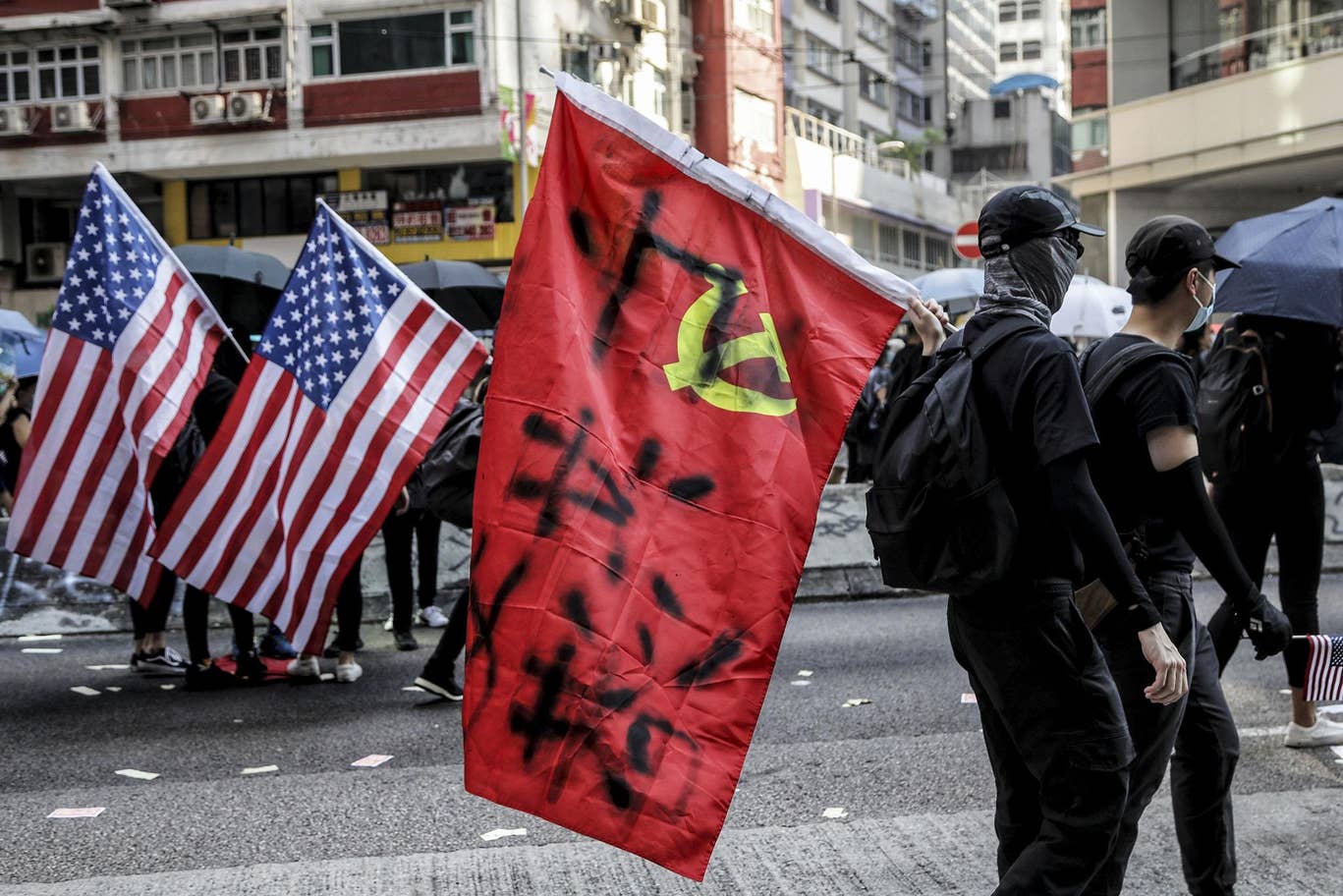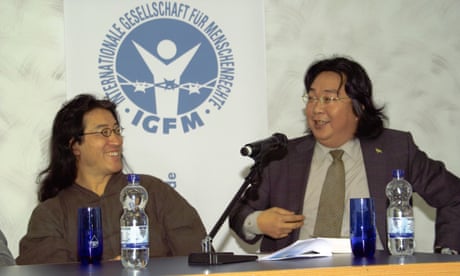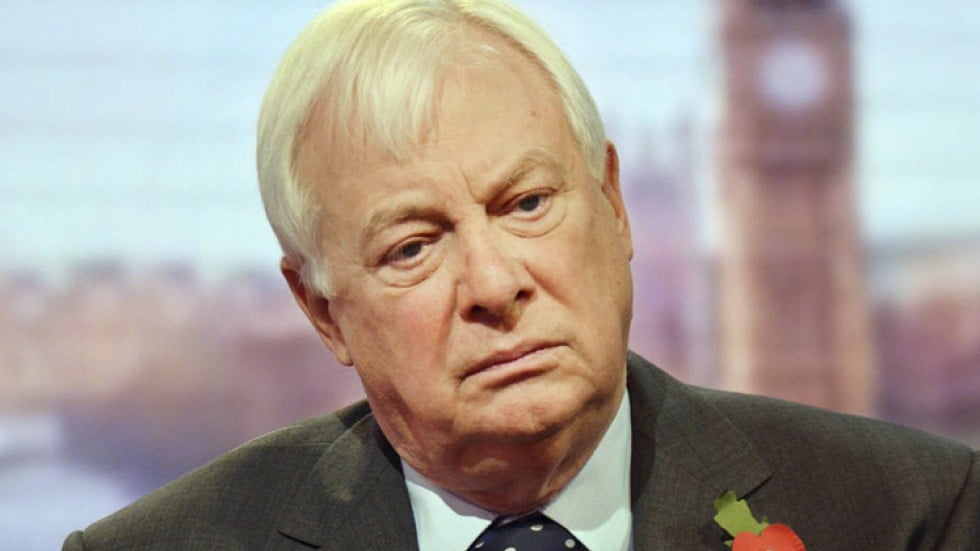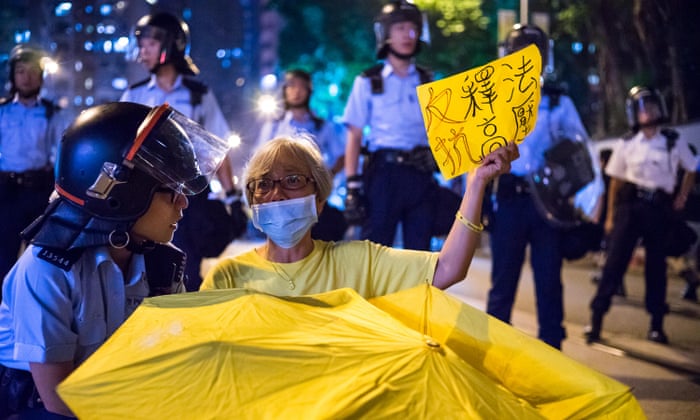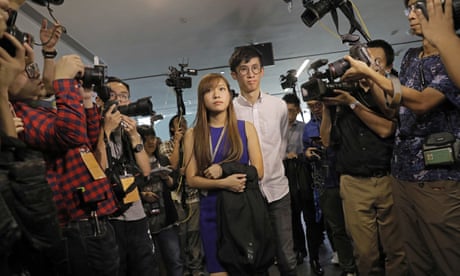By Johnny Patterson
While Britain remains endlessly distracted by Brexit, the rest of the world was watching its former colony as a teenage pro-democracy protestor was shot by Hong Kong police.
Confrontations flashed throughout the city just as the 70th anniversary of Communist China sent fireworks sparkling into the Beijing sky.
Confrontations flashed throughout the city just as the 70th anniversary of Communist China sent fireworks sparkling into the Beijing sky.
During one of these confrontations, a sixth-form student was shot from point blank range with a live bullet and left in a critical condition.
Police brutality is being normalised in Hong Kong.
Police brutality is being normalised in Hong Kong.
A recent Amnesty International report confirms “an alarming pattern of the Hong Kong Police Force deploying reckless and indiscriminate tactics” in their arrests, as well as beating and torturing people in detention.
The police have consistently responded to a minority of violent protestors disproportionately: targeting protestors indiscriminately, and sometimes even civilians taking no part in the protests.
The press now appears to be an acceptable target.
The press now appears to be an acceptable target.
A journalist for an Indonesian-language publication was recently shot with a rubber bullet, despite being clearly identifiable as a member of the press.
The Foreign Correspondent’s Club reported that over the weekend, journalists were hit by tear gas canisters and rubber bullets, targeted with pepper spray, verbally threatened by the police, and blocked from documenting the arrests of protestors.
Buzzfeed’s Rosalind Adams live-tweeted herself being hit with batons while trying to film one arrest.
“Police terrorism”, as it is dubbed by many Hong Kongers, has been on the frontpages of the newspapers on an almost daily basis for months.
“Police terrorism”, as it is dubbed by many Hong Kongers, has been on the frontpages of the newspapers on an almost daily basis for months.
The result has been a total collapse of public trust in both the government and the police force.
Hong Kong protesters "day of grief" on communist China anniversary
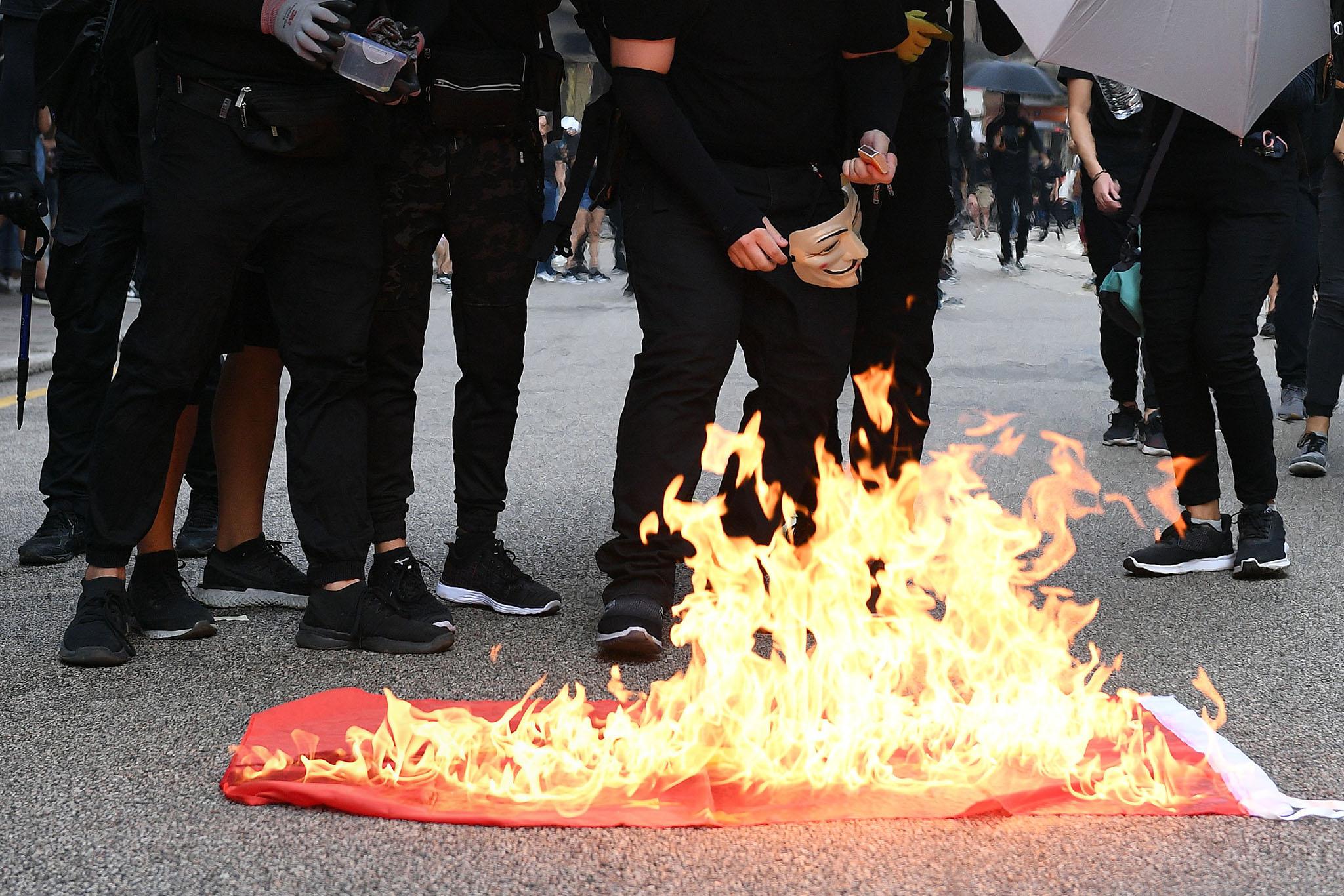
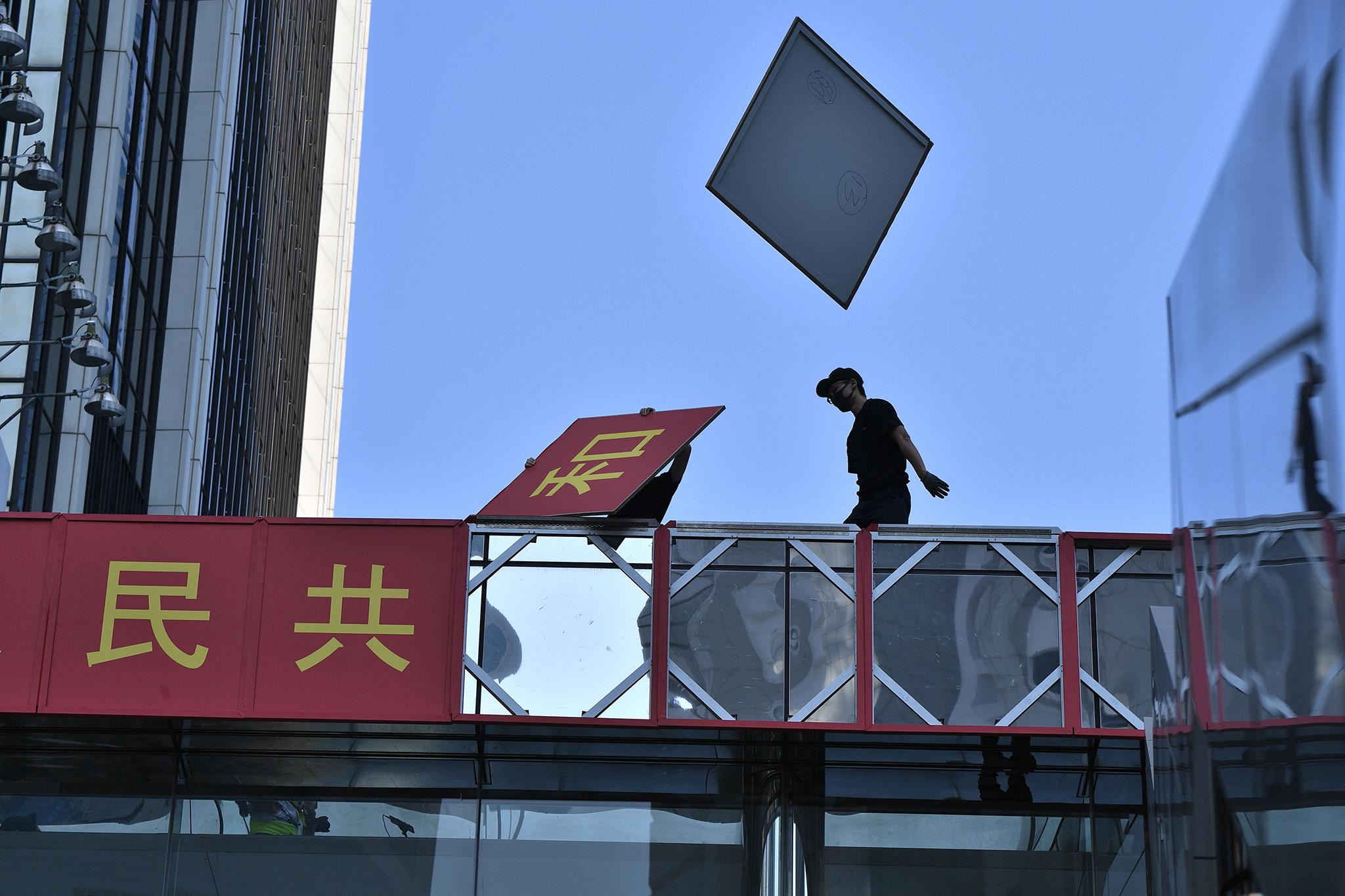
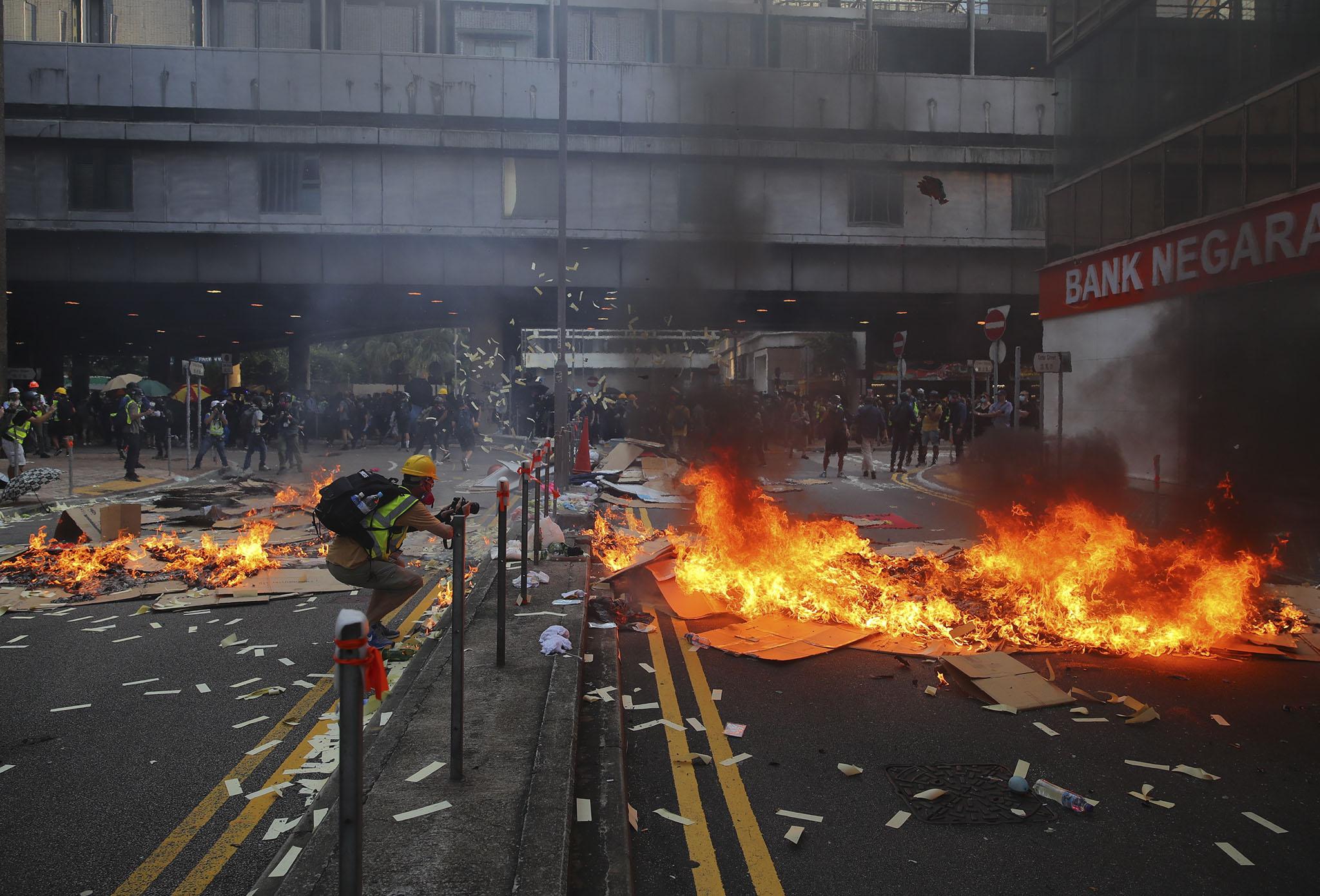
Any lasting solution to the political crisis will need bold actions for reconciliation to be taken by the Hong Kong government and their counterparts in Beijing.



Any lasting solution to the political crisis will need bold actions for reconciliation to be taken by the Hong Kong government and their counterparts in Beijing.
But there is little sign of this.
The Hong Kong government have refused to agree to what look like moderate and reasonable demands from protestors – including calls for the police force to face an independent inquiry into their actions.
The Hong Kong government have refused to agree to what look like moderate and reasonable demands from protestors – including calls for the police force to face an independent inquiry into their actions.
Instead it has doubled-down and given the police licence to act with impunity.
And so, in the meantime, we must stand with the people of Hong Kong.
The UK has a special duty to the people of Hong Kong.
And so, in the meantime, we must stand with the people of Hong Kong.
The UK has a special duty to the people of Hong Kong.
Not only are Hong Kongers at the forefront of the global battle for freedom and democracy, but we have a historical duty to stand with them.
When the UK handed Hong Kong over to China in 1997, the arrangement was made on the basis that the rights and freedoms of the people of Hong Kong would remain unchanged until 2047.
When the UK handed Hong Kong over to China in 1997, the arrangement was made on the basis that the rights and freedoms of the people of Hong Kong would remain unchanged until 2047.
The handover agreement, the Sino-British Joint Declaration, writes into international law a moral and legal obligation for the UK to stand up for the freedoms of the people of Hong Kong.
The integrity of this agreement is gravely threatened by the events of recent weeks.
Dominic Raab issued a statement condemning the “disproportionate” use of force by the police force yesterday, but we must prove that our support for Hong Kong is more than just empty words.
Here are three ways we can do this.
Here are three ways we can do this.
First, the government should consider adopting legislation which will ensure that there are consequences if the Hong Kong government continues to trample on people’s freedoms.
Magnitsky sanctions, targeted at the individual violators of human rights, could be applied to officials who are deemed to be responsible for breaches of the Joint Declaration.
Second, post-Brexit, any trade agreement with Hong Kong or China must include a Hong Kong human rights clause.
Trade law is more strongly enforceable than other types of international law, and so it is critical that we do not betray our commitment to Hong Kong in any future negotiations.
Finally, many parliamentarians have signalled their support for various campaigns which would provide an insurance policy by extending the rights applicable to holders of British National (Overseas) passports.
Unlike in other British colonies, Hong Kong citizens were not allowed to maintain their British citizenship after the handover.
Unlike in other British colonies, Hong Kong citizens were not allowed to maintain their British citizenship after the handover.
Instead they were fobbed off with second tier “BNO” passports which the late-Lord Ashdown claimed were a scandal rivalling Windrush.
Even soldiers who had served in the British army were not given the right to retain their British citizenship.
It would be easy for the government to expand the rights held by BNO passports, and the Foreign Affairs Committee Chairman Tom Tugendhat has argued that this would provide many Hong Kongers with the “confidence to stay in Hong Kong”, knowing that they have a possible way out.
During the handover negotiations, prime minister John Major declared that “Hong Kong will never walk alone”.
It would be easy for the government to expand the rights held by BNO passports, and the Foreign Affairs Committee Chairman Tom Tugendhat has argued that this would provide many Hong Kongers with the “confidence to stay in Hong Kong”, knowing that they have a possible way out.
During the handover negotiations, prime minister John Major declared that “Hong Kong will never walk alone”.
At this pivotal hour in Hong Kong’s history, we must not forget our unique ties to the people of Hong Kong.
We must stand with them in their fight for freedom.
They must not walk alone.
